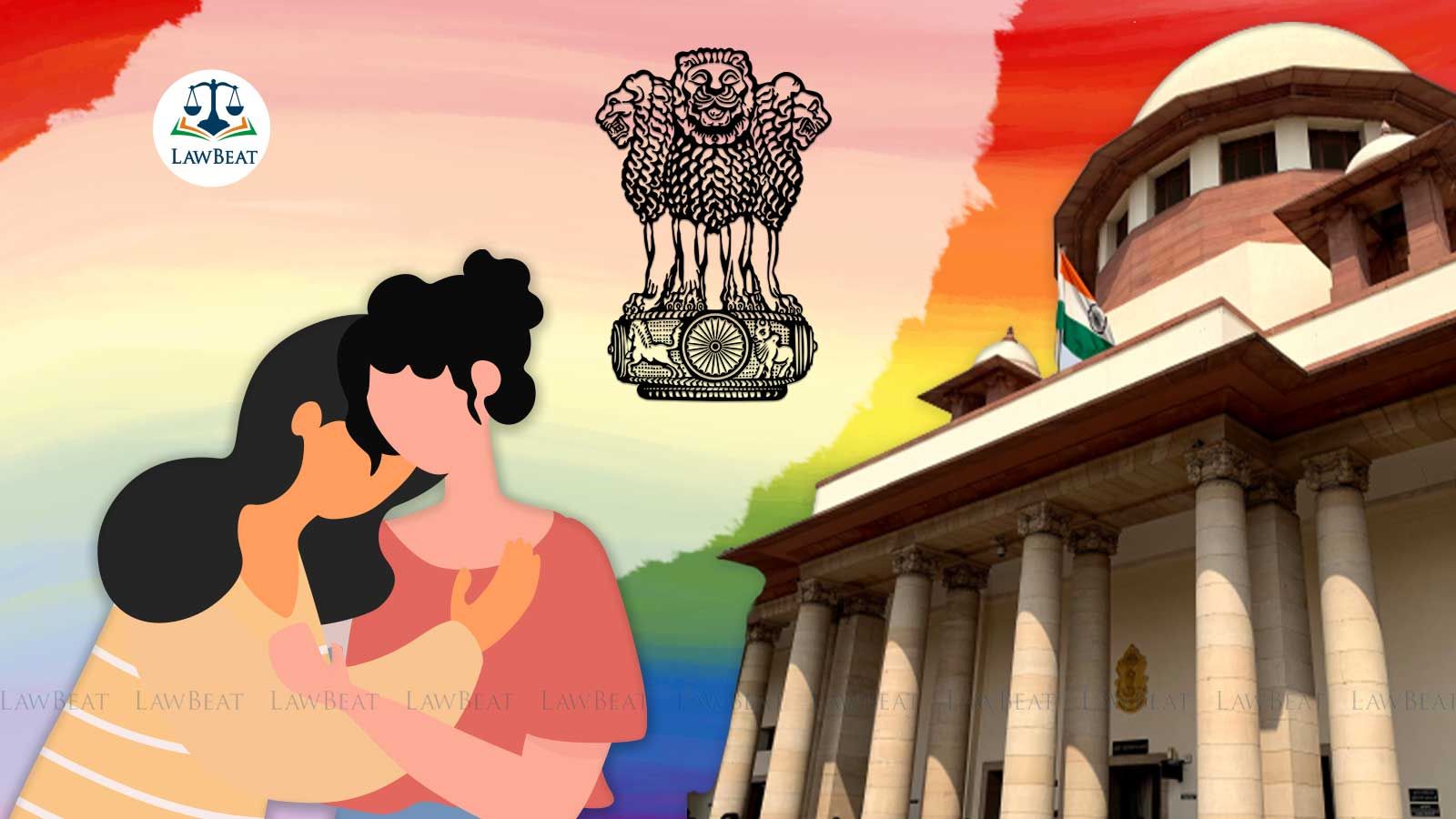"Court must refrain from passing omnibus orders": Centre says Legal Recognition of Same Sex Marriage is legislature's domain

A Constitution bench of the Supreme Court comprising Chief Justice of India DY Chandrachud, Justices Sanjay Kishan Kaul, S Ravindra Bhat, PS Narasimha and Hima Kohli is seized with the same-sex marriage petitions.
The Central Government has filed an application before the Supreme Court on the same-sex marriage recognition issue, seeking preliminary adjudication on the issue of maintainability.
The Centre states that "as the prayers made would entail the judicial creation of a social institution called “marriage” of a different kind than contemplated under the existing law, the said issue goes to the root of the present matter and has far reaching implications".
Centre has stated that the issue which is being projected in the petition(s) at hand only represent an "urban elitist view" and all aspects must be delved into, including broader views and voice of all rural, semi-rural and urban population, views of religious denominations, while keeping in mind personal laws as well as and customs governing the field of marriage together with its inevitable cascading effects on several other statutes.
In this context, it is the Centre's stand that preliminary issues must be framed before going into the merits of the aspect of changing the laws as they stand today, as effectively, the petitions challenge the Hindu Marriage Act, Special Marriage Act, Foreign Marriage Act etc. which restrict marriage only between a man and a woman from a biological lens.
"The Applicant respectfully submits that marriage is a socio-legal institution which can be created, recognized, conferred with legal sanctity and regulated only [by making incidental provisions like divorce, alimony, etc.] by the competent legislature by way of an Act under Article 246 of the Constitution of India. It is submitted that such legislation depends upon the legislative policy of the appropriate legislature," the Centre has chosen to state.
Centre adds that the creation or recognition of a new social institution altogether, cannot be claimed as a matter of right/choice, much less a fundamental right. Therefore, it necessarily follows that the right to personal autonomy does not include a right for the recognition of same sex marriage and that too by way of judicial adjudication. Thus, it is the Centre's stand that the issue be governed by legislature.
It has been further stated that a decision by the Court in recognising the right of same sex marriage would mean a virtual judicial rewriting of an entire branch of law. "The Court must refrain from passing such omnibus orders. The proper authority for the same is appropriate Legislature," Centre avers.
Last month, the Centre had filed an affidavit before the Supreme Court opposing the demand for legal recognition of same-sex marriages in India.
Citing the ‘nature of the concept of marriage’, the affidavit stated that the notion of marriage itself necessarily and inevitably presupposes a union between two persons of the “opposite sex”.
“This definition is socially, culturally, and legally ingrained into the very idea and concept of marriage and ought not to be disturbed or diluted by judicial interpretation”, the affidavit read.
It was further stated that: “Depending upon the personal laws applicable, the nature of marriage as an institution is different. Among Hindus, it is a sacrament, a holy union for the performance of reciprocal duties between a man and a woman. In Muslims, it is a contract but again is envisaged only between a biological man and a biological woman. It will, therefore, not be permissible to pray for a writ of this Hon’ble Court to change the entire legislative policy of the country deeply embedded in religious and societal norms”.
Notably, on January 6, the Supreme Court had ordered to transfer of all pleas pending before various high courts seeking recognition for same-sex marriage to itself.
"Any petitioner who desires to address this court through a virtual platform can do so if they suffer from a difficulty in appearing before us physically", the Top Court had further ordered.
In November last year, the Supreme Court issued a notice in the plea moved by a gay couple seeking legal recognition of same-sex marriage under the Special Marriage Act, of 1954.
Senior Advocate Mukul Rohatgi appearing on behalf of the petitioner-couple had then submitted before a bench comprising CJI Chandrachud and Justice Hima Kohli that the issue was a sequel to Navtej Singh Johar's judgment.
The absence of a legal framework that allows members of the LGBTQ+ community to marry any person of their choice had been raised by the instant plea.
In the plea seeking recognition of same sex marriage, it was submitted that Special Marriage Act is ultra vires the Constitution of India to the extent that it discriminates between same-sex couples as opposed to opposite-sex couples denying same-sex couples both legal rights as well the social recognition and status that flow from marriage.
Case Title: Supriyo@ Supriya Chakraborthy v. Union of India & Anr. (a batch of petitions)
